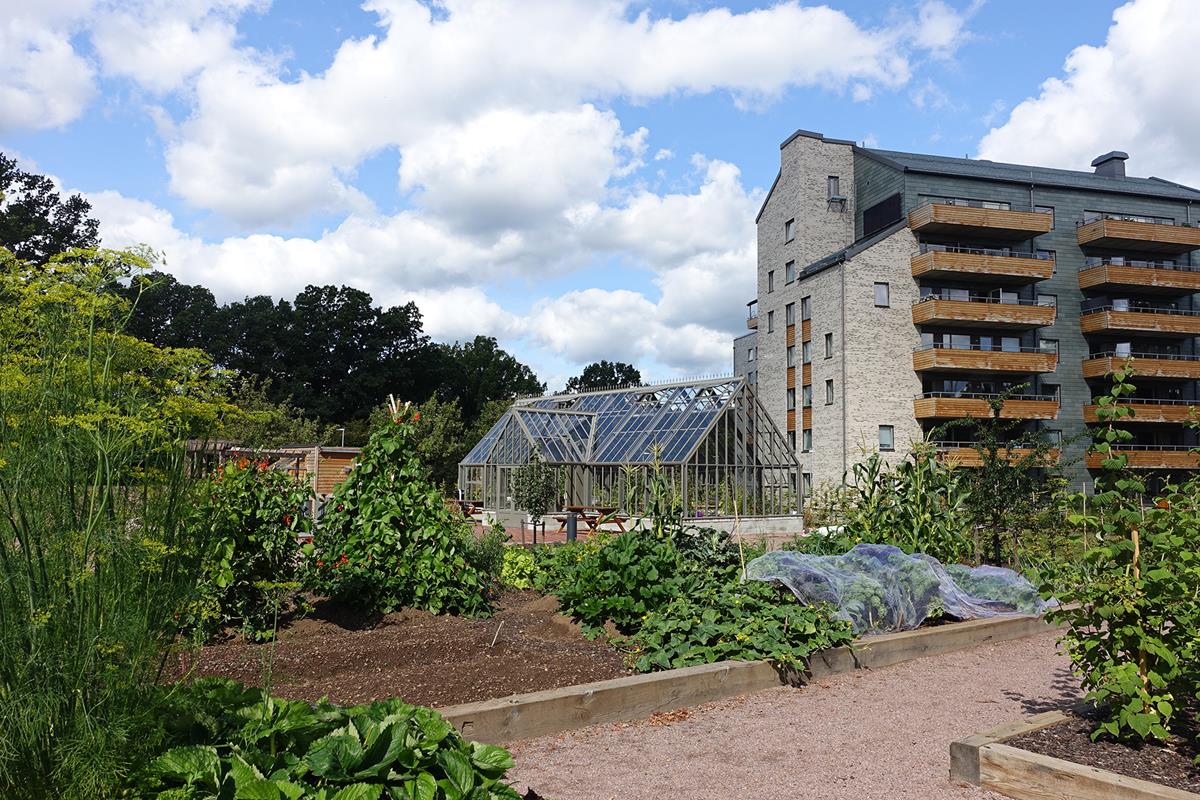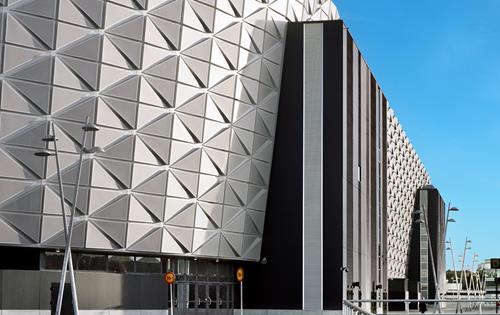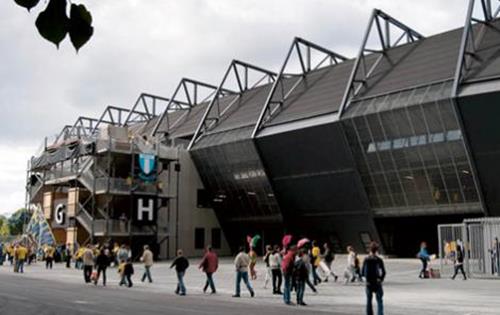Eko-logi
Eko-logi is Sweden’s only residential area that has met the requirements to be certified in accordance with the Nordic Swan Ecolabel, the Miljöbyggnad Guld scheme and the passive building standard FEBY12. Assemblin has contributed innovative and efficient solutions in heating and sanitation.
At the start of the year, the final tenants moved into Skövdebostäder’s new eco-friendly residential area Eko-logi. Assemblin has contributed innovative and efficient heating and sanitation solutions, which have helped the area secure certification in accordance with the Nordic Swan Ecolabel, the Miljöbyggnad Guld scheme and the passive building standard FEBY12.
Eko-logi is Sweden’s only residential area to have been certified in accordance with all three certification schemes. The area also received SABO’s (Public Housing Sweden) Sustainability Award 2017, and is considered one of the country’s most sustainable residential areas. The area contains 242 rental apartments and a new preschool. The rental apartments are split between seven high-rise apartment buildings and a low-rise section.
Sustainability permeates the entire residential area
The story of Eko-logi begins in 2014, when the developer, Skövdebostäder, decided to invest in this residential area and put the focus firmly on sustainability and ecology. It is close to Aspö Farm, an urban farm home to various animals, with its great cultural and natural values, and whose activities are accessible to all tenants of the housing company.
“We felt that this scenic area, with great spots for leisure activities and recreation, required an environmental profile. In addition, we wanted to test and evaluate different solutions for sustainable living, for use in future new construction and in our existing portfolio,” says Sebastian Karlström, Construction Project Manager for Eko-logi at Skövdebostäder.
“In order to verify that what we are building at Eko-logi is truly eco-friendly, we chose certification in accordance with the Nordic Swan Ecolabel, Miljöbyggnad Guld and FEBY12 schemes. That gives us an objective assessment from a third party that we are actually achieving the criteria we have been aiming for.”
Same team all the way through
The turnkey contractor for the project was Peab, who had already engaged Assemblin at the procurement stage.
“It has been extremely stimulating and instructive to be part of this unique project from start to finish for almost four years, and with the same team all the way through,” says Peter Liljedahl, Branch Manager for Assemblin VS in Skövde and project manager for the assignment.
The tough requirements for sustainability and three different environmental certification schemes meant that Assemblin needed to develop exceptionally energy-efficient solutions and find the most resource-efficient material choices.
“We are really pleased with Assemblin’s efforts. Their team has really taken on board the requirements for quality, creativity and responsibility right the way through – from design to installation. I think Assemblin should be particularly proud that the same people worked on the project throughout – achieving that during a very busy business period and when there was significant mobility in the labour market really says something,” says Sebastian Karlström.
Special conditions required innovative thinking
As the area is in a water protection zone, drilling into the ground is not permitted, which excludes all forms of ground or geothermal heating.
“When there are tough requirements for sustainable heating, ground or geothermal heating is often the easiest and best solution. But in this case we had to find another model. We came up with a combination of solar cells, air-water pumps, heat recovery from wastewater and some district heating. We also chose pipes with superior insulation to minimise heat losses,” says Peter Liljedahl.
“The solution has worked very well. We haven’t carried out a comprehensive evaluation yet, but our property managers already believe that, for example, the method of recovering heat from wastewater has produced better than expected results,” says Sebastian Karlström.
Overall, Assemblin’s solution means that the entire area complies with the passive building standard and that the need for district heating to the area as a whole is minimised.
All materials for projects must be approved by the Nordic Swan Ecolabel, which has meant extensive research work.
“Two basic material choices for us were to use alupex pipes instead of copper pipes and completely lead-free couplings,” says Peter.
A cold winter tested the culvert
A special challenge was the 40-metre-long culvert that supplies the entire low-rise section with water and heat from a separate technical building. In this instance, special requirements were introduced for insulation and installation technology in order to comply with the passive building standard. Assemblin was responsible for the development and production of the culvert. The insulation and environmental requirements were solved using polystyrene boxes, which in turn placed very high demands on ground preparation.
“Heat loss in culverts is a real challenge. And right away this solution faced a test due to the very cold winter that followed the installation work. But the results we have seen demonstrate that it has worked brilliantly,” says Sebastian.
“Overall, we are hugely impressed with the professional commitments and results that Assemblin has contributed to Eko-logi.”
For Assemblin and its team, the Eko-logi project has been a challenge that has provided valuable knowledge.
“The project has given us fantastic experiences to draw on in the future. And it feels really good to have contributed to one of the country’s most sustainable residential areas,” concludes Peter Liljedahl.



